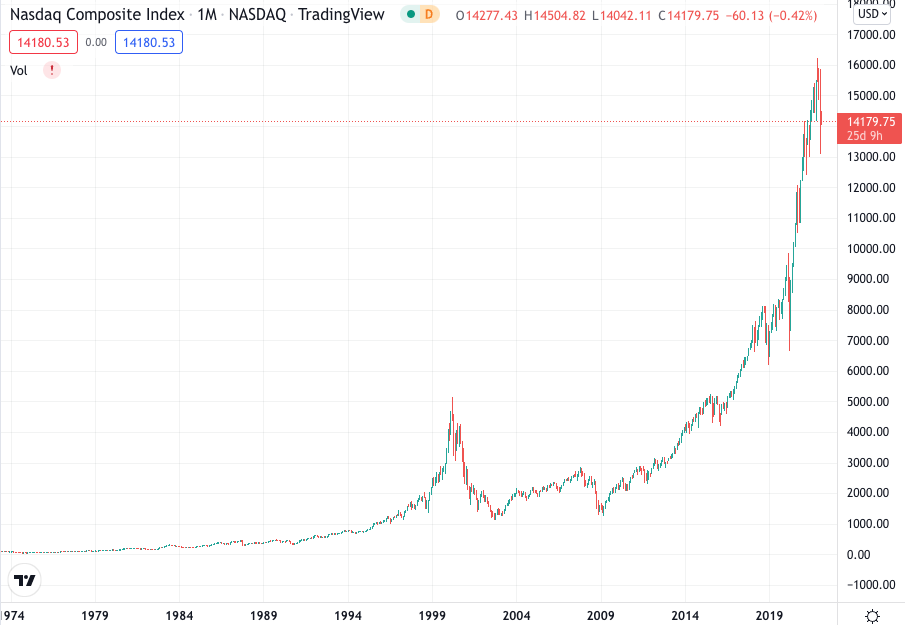📝 Market Commentary for 2021-Q4 and 2021-YE
This past year was one of the best for U.S. equities. We look ahead to Fed tightening, market volatility, geopolitical risks and learn about why managing large losses in a portfolio is critical.
We conduct in-depth investment research and provide commentary on the most significant market events of the previous quarter and provide an outlook for the current investing environment.
Do not reply to this email with any service requests, contact us for support if needed.
Fed Signals An Abrupt Reversal of Policy, Volatility Increased Across U.S. Markets.
(Conscious Capital Advisors)
🔗 Source
Since the very first published commentary, our firm has been warning investors about the potential risks of the U.S. Federal Reserve's easy money policies, which have been in place since 2008. We have highlighted the Fed's actions every quarter intentionally, as much of the behavior in financial markets in the past 14 years can be explained by the Fed's easy money policies. And now, in January 2022, that policy seems to be reversing - and at a very abrupt pace.
We warned prudent investors that U.S. equities were likely in a bubble last quarter. As of this writing, in Q1 2022, we have signals that the financial markets are becoming unstable. This volatility has been significant, as major U.S. equity indices (S&P 500, Dow Jones, NASDAQ) have begun to flirt with their 200-day moving averages, a critical technical indicator for many technical investors. Some U.S. indices (e.g., Russell 2000) have breached a 20% drop level, traditionally where a bear market is called. With a reduction of capital entering financial markets due to tapering and the prospect of interest rate hikes occurring sooner than expected, it's unsurprising that stocks, particularly those of speculative, leveraged companies, are exhibiting major volatility.
Geopolitical Risks Exacerbates Existing Monetary Situation.
(Conscious Capital Advisors)
🔗 Source
Financial risks in markets can occur when geopolitical rivals conduct economic warfare on each other. China and Russia are, with their concerted efforts, are establishing alternative financial institutions to compete with the U.S.-centric system that has dominated the global economy since World War II.
The U.S.'s mortgage debt crisis in 2008 has raised doubts about the desirability and viability of a global economy centered on the U.S. dollar as its primary currency. The situation casts doubt on the entire post–World War II financial architecture, in which the U.S. defined and created the majority of the rules of the game and institutions.
Britain was the last major hegemon during its imperial era, defining and enforcing its definition of world order. As the current hegemon, the United States has dominated the post–World War II world order. And now, China has cemented its position as a competing economic force to challenge that order.
Why Are Bubbles So Dangerous?
(Conscious Capital Advisors)
🔗 Source
Many people are unaware that returns are geometric, necessitating a much higher rebound rate that grows with the loss. As seen in the table, one can determine that a 10% drawdown requires approximately an equal price appreciation of 11.1%, but as the drawdown percentage increases, the return required to break even increase disproportionately. A 20% drawdown requires a 25% return, a 50% drawdown requires a 100% return, and anything greater than 75% requires a multiple.
Thus, managing the risk of a large drawdown is a critical strategy for wealth creation. Consider this idea: the lower the volatility, the more stable the foundation, the easier it is to grow your wealth. You absolutely want to avoid the risk of ruin, which occurs when your portfolio reaches zero, and no growth rate can save it. These risks can be managed in various ways, through diversification and sizing the allocation to certain risks properly during the portfolio construction process. Security selection can be another significant contributor to performance. We believe in a more conservative, risk-managed investment philosophy, and aim to prevent a downside loss that could take decades to recover from.
Written by Joseph Lu, CFA®
Joseph is the founder and managing director of Conscious Capital Advisors and a CFA® Charterholder.
🔗 Connect with us on LinkedIn, Facebook, or Twitter.
Have a question about what we shared? Email us at info@consciouscapital.pro.
Do not reply to this email with any service requests, contact us for support if needed.
The information presented in this newsletter is for educational purposes only and is not a solicitation or recommendation for any specific security, product, service, or investment strategy.
Investments involve risk and unless otherwise stated, are not guaranteed. Be sure to consult with a qualified financial advisor, tax professional, or attorney before implementing any strategy or recommendation you may read here.




